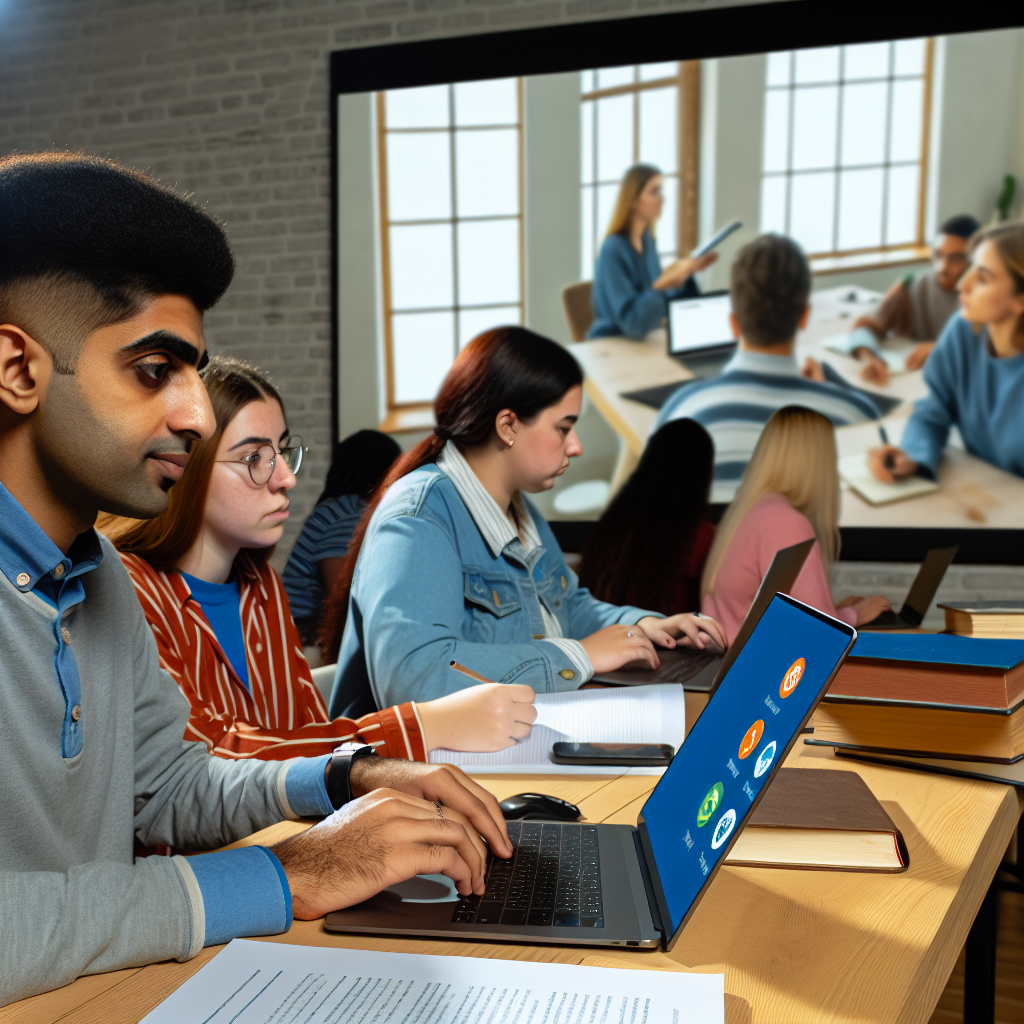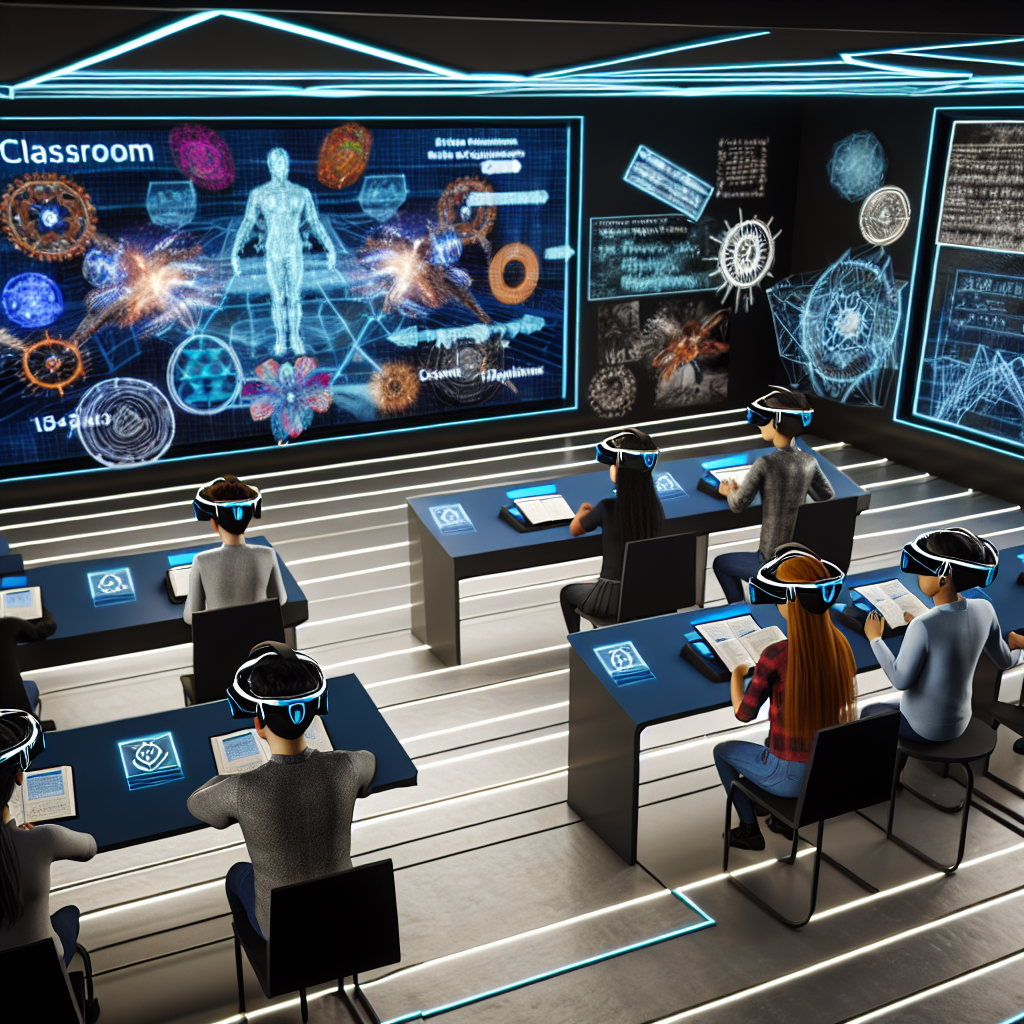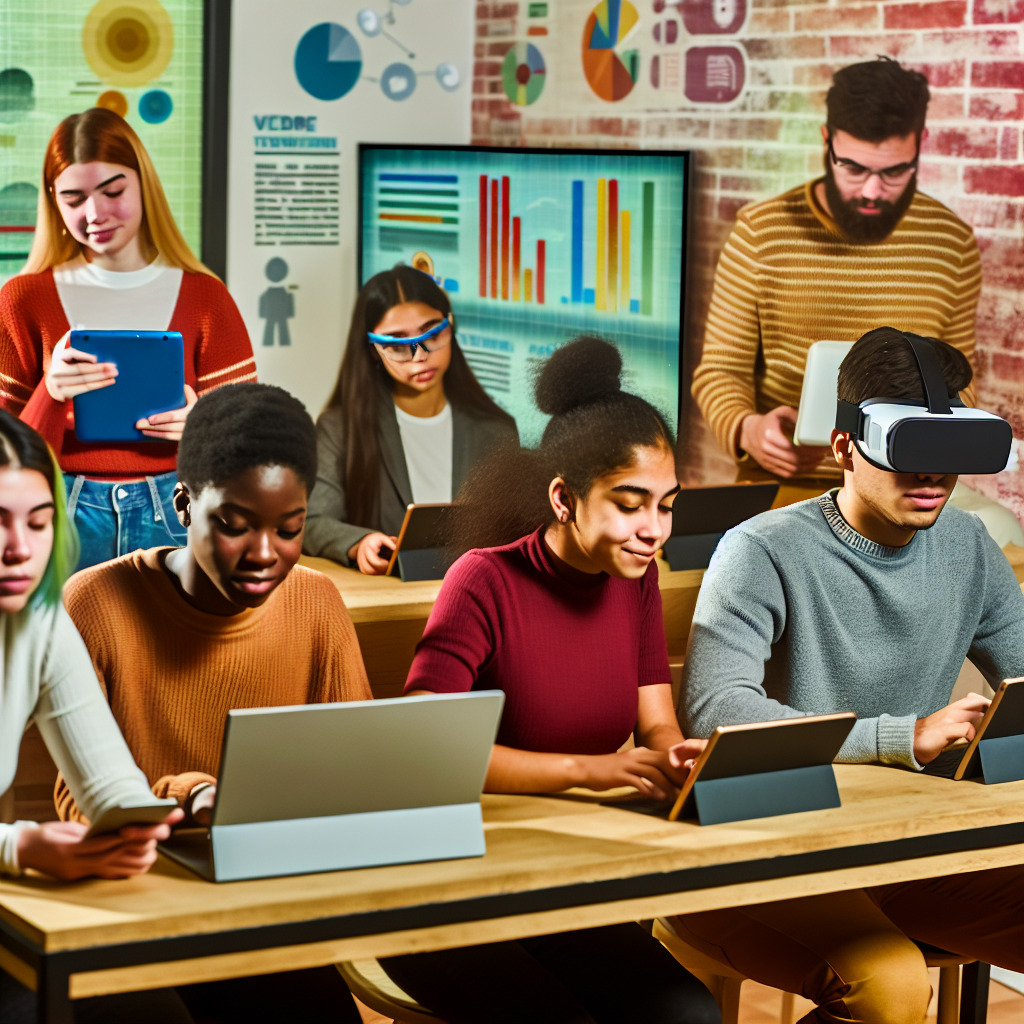E-learning platforms and EdTech are revolutionizing education by offering personalized learning experiences, real-time feedback, and interactive tools for student engagement in digital classrooms. The future of online learning includes VR, AR, AI, and gamification to create dynamic and hands-on learning environments. Educators must adapt by creating interactive online learning environments, providing ongoing support and training, and evaluating strategies to enhance student engagement in digital classrooms.
In recent years, the integration of technology in education has transformed the way students learn and teachers instruct. E-learning platforms and digital classrooms have revolutionized the traditional classroom setting, offering innovative ways to engage students and enhance their learning experience. In this article, we will explore the rise of e-learning platforms, the importance of student engagement in digital classrooms with EdTech, the future of online learning through technological advancements, and strategies for success in navigating the shift to digital classrooms. Join us as we delve into the exciting world of E-learning, Digital Classrooms, EdTech, and Online Learning.
- 1. Revolutionizing Education: The Rise of E-Learning Platforms
- 2. Enhancing Student Engagement in Digital Classrooms with EdTech
- 3. The Future of Online Learning: Innovations in E-Learning Technology
- 4. Navigating the Shift to Digital Classrooms: Strategies for Success in EdTech
1. Revolutionizing Education: The Rise of E-Learning Platforms

E-learning platforms have revolutionized the way education is delivered and accessed, transforming traditional classrooms into digital learning environments. With the rise of technology in education, students now have the opportunity to engage with course materials online, participate in virtual discussions, and complete assignments remotely. EdTech companies have developed sophisticated online learning platforms that cater to a wide range of subjects and grade levels, making education more accessible and flexible for students around the world.
Digital classrooms powered by e-learning platforms offer a variety of benefits, including personalized learning experiences, interactive multimedia content, and real-time feedback. Students can access course materials at their own pace, review lectures multiple times, and engage with classmates and instructors through online forums and video conferencing. This level of student engagement in online learning has been shown to improve academic performance and overall understanding of course material.
As the future of education continues to embrace technology, e-learning platforms will play a crucial role in shaping the digital classrooms of tomorrow. Online learning offers a cost-effective and efficient way to deliver educational content, making it accessible to students of all backgrounds. With the ongoing advancements in EdTech, the possibilities for online learning are endless, and the potential for student engagement in digital classrooms is limitless.
2. Enhancing Student Engagement in Digital Classrooms with EdTech

One of the key benefits of incorporating EdTech into digital classrooms is the ability to enhance student engagement. Online learning platforms offer various interactive tools and resources that can captivate students' attention and make learning more enjoyable. From virtual simulations and gamified activities to multimedia presentations and collaborative projects, EdTech provides a dynamic and engaging learning experience for students.
Moreover, EdTech allows for personalized learning experiences tailored to individual students' needs and learning styles. Through adaptive learning algorithms and data analytics, educators can track students' progress and provide targeted interventions to help them succeed. This personalized approach not only boosts student engagement but also fosters a deeper understanding of the material.
In addition, the flexibility of e-learning platforms enables students to learn at their own pace and access educational content anytime, anywhere. This accessibility can help students stay motivated and engaged in their studies, especially for those who may struggle with traditional classroom settings.
Overall, the integration of EdTech in digital classrooms has the potential to revolutionize education by enhancing student engagement and creating a more interactive and personalized learning environment. By leveraging the power of technology, educators can inspire and empower students to reach their full potential in the digital age.
3. The Future of Online Learning: Innovations in E-Learning Technology

With the rapid advancement of technology, the future of online learning is constantly evolving. Innovations in e-learning technology are revolutionizing the way students engage with educational content and interact with their instructors. EdTech companies are continuously developing new tools and platforms to enhance the digital classroom experience.
One major innovation in e-learning technology is the use of virtual reality (VR) and augmented reality (AR) in online learning. These technologies allow students to immerse themselves in interactive and engaging virtual environments, making learning more dynamic and hands-on. By incorporating VR and AR into e-learning platforms, educators can create more personalized and impactful learning experiences for students.
Another trend in online learning is the integration of artificial intelligence (AI) and machine learning algorithms. These technologies enable e-learning platforms to provide personalized recommendations, adaptive learning paths, and real-time feedback to students. By analyzing data on student performance and learning preferences, AI can help educators tailor their teaching methods to better meet the individual needs of each student.
Furthermore, gamification is playing a significant role in enhancing student engagement in online learning. By incorporating game elements such as points, badges, and leaderboards into e-learning platforms, educators can make learning more interactive and enjoyable for students. Gamified learning experiences can motivate students to stay focused, track their progress, and compete with their peers, ultimately leading to higher levels of student engagement and retention.
Overall, the future of online learning is bright and full of exciting possibilities. As e-learning technology continues to evolve, digital classrooms will become more interactive, personalized, and engaging for students. By embracing these innovations in EdTech, educators can create dynamic and effective online learning experiences that cater to the diverse needs and preferences of students in the digital age.
4. Navigating the Shift to Digital Classrooms: Strategies for Success in EdTech

As the education landscape continues to evolve, the shift to digital classrooms has become increasingly prevalent. With the rise of e-learning platforms and the integration of technology in education, educators are faced with the challenge of adapting to this new learning environment.
In order to successfully navigate this transition, it is important for educators to implement strategies that promote student engagement and enhance the overall learning experience. One key strategy for success in EdTech is to focus on creating interactive and dynamic online learning environments. By incorporating multimedia elements, interactive quizzes, and collaborative tools, educators can keep students actively engaged and motivated to learn.
Another important aspect of navigating the shift to digital classrooms is to provide ongoing support and training for both educators and students. This includes providing resources and guidance on how to effectively use e-learning platforms, as well as offering technical support for any issues that may arise. By ensuring that all users are comfortable and confident in using digital tools, educators can maximize the potential of online learning.
Additionally, it is essential for educators to regularly assess and evaluate the effectiveness of their digital classroom strategies. By collecting feedback from students and analyzing data on student performance, educators can identify areas for improvement and make necessary adjustments to enhance the learning experience. This continuous feedback loop is crucial for ensuring that online learning remains engaging and effective for all students.
Overall, the shift to digital classrooms presents both challenges and opportunities for educators. By implementing strategies that prioritize student engagement, providing ongoing support and training, and regularly assessing the effectiveness of digital classroom practices, educators can successfully navigate the transition to EdTech and create dynamic online learning environments for all students.
In conclusion, the integration of e-learning platforms and EdTech in digital classrooms is revolutionizing education as we know it. These innovative technologies not only enhance student engagement but also offer endless possibilities for personalized learning experiences. The future of online learning looks bright with ongoing innovations in e-learning technology. As educators navigate the shift to digital classrooms, implementing strategies for success in EdTech will be crucial for creating dynamic and effective learning environments. Embracing the power of e-learning, digital classrooms, and online learning is key to preparing students for success in the digital age.





